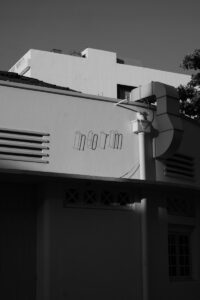Certification and marking are essential legal tools for companies in a competitive market. These mechanisms attest to the conformity of a product or service to precise technical requirements. Companies must master this complex legal framework, which influences their access to the market and engages their responsibility.
Product and service certification
Certification is a fundamental way of enhancing the quality and safety of products and services. Its precise legal framework structures the market and protects consumers.
Legal definition of certification
Article L. 115-27 of the French Consumer Code defines certification as "the activity whereby a body, distinct from the manufacturer, importer, seller, service provider or customer, attests that a product, service or combination of products and services complies with the characteristics described in a certification reference system".
This definition sets out three essential principles. Firstly, the independence of the certification body from the stakeholders. Secondly, the existence of a precise technical reference system. Finally, the attestatory nature of certification.
The certification reference system is the fundamental technical document which defines the characteristics of the product or service and the inspection procedures. It is drawn up by the certification body, which must obtain the opinion of the interested parties.
Certification is legally different from other forms of recognition such as labels or appellations. It is part of a regulated framework with formalised procedures and an objective assessment by a third party.
Types of certification
Three main forms of certification coexist in the French system.
Certification of industrial products and services is the most widespread form of certification. It attests to the conformity of a good or service to defined technical characteristics. It is the result of a voluntary approach by the manufacturer or service provider. The NF mark, issued by AFNOR Certification, is the best-known example in France.
Company certification, often referred to as "system certification", focuses on internal organisation and processes. It applies in particular to quality (ISO 9001), environmental (ISO 14001) or safety (ISO 45001) procedures. This certification guarantees that the company's working methods comply with the requirements of the standards.
Personnel certification attests to the competence of individuals to perform specific tasks. It concerns technical professions or audit functions. Certification generally involves theoretical and practical examinations, followed by periodic assessments.
For more information on the links between certification and technical standards, see our article on voluntary and mandatory application of standards in french law.
Certification bodies and accreditation
Certification is based on the credibility of the organisations that issue it. These bodies must meet strict requirements.
Certification bodies are private-sector entities which assess the conformity of a product, service or system to a set of standards. Article L. 115-28 of the Consumer Code requires them to be accredited before they can carry out this activity.
Accreditation is formal recognition of a body's technical competence to carry out specific assessments. In France, the Comité français d'accréditation (COFRAC) holds the legal monopoly for issuing such accreditation. This association, set up in 1994, assesses the impartiality, independence and competence of applicant bodies.
At European level, Regulation 765/2008/EC provides a framework for accreditation. It organises mutual recognition between the national accreditation bodies of the Member States. A body accredited in one country can therefore operate throughout the European Union.
The certification body plays a crucial role, but its liability remains limited. Jurisprudence considers that it does not guarantee the absence of defects in certified products. The Court of Cassation has specified that an organisation such as AFNOR "has the task of drawing up the standards" and certifying compliance, "which in no way constitutes an assurance that it is liable in the event of product failure" (Civ. 1re, 2 October 2007).
National branding and its implications
Marking is the visible manifestation of certification. In France, several systems coexist, each with its own specific legal framework.
The NF mark and its legal status
The NF mark is the most widely recognised national certification system in France. Its legal framework combines intellectual property law and certification regulations.
The NF mark is owned by AFNOR Certification, a subsidiary of the Association française de normalisation. It certifies the conformity of a product or service to the requirements defined in the corresponding certification reference system. These requirements incorporate the relevant French, European or international standards, supplemented by specifications tailored to each product category.
Legally, the NF mark is a collective certification mark within the meaning of the Intellectual Property Code. It is registered with the Institut national de la propriété industrielle (INPI) and benefits from specific protection against unauthorised use.
The NF mark is available in several categories: NF (unspecified) for industrial and consumer products, NF Environnement for ecological products, and NF Service for services.
Application procedure and checks
Obtaining the NF mark follows a formalised procedure comprising several legally regulated stages.
The applicant must first submit a file to AFNOR Certification or the body appointed for the sector concerned. This file includes technical information about the product and the manufacturer's quality system.
AFNOR Certification then carries out an assessment comprising several phases: audit of the production site, sampling and testing of the products, examination of the results by a committee of experts. The purpose of this assessment is to check compliance with the applicable certification standards.
If the assessment is positive, AFNOR Certification issues a certificate authorising use of the NF mark. This authorisation takes the legal form of a licence to use the mark, with specific obligations.
The right to use the NF mark is accompanied by continuous monitoring. Periodic audits and regular tests verify that compliance is maintained. In the event of non-compliance, the licence may be suspended or withdrawn in accordance with an adversarial procedure set out in the "General Rules of the NF Mark".
Use of the mark involves remuneration paid to AFNOR Certification, comprising initial admission costs and annual fees. These financial aspects are set by product category in the specific certification rules.
Legal protection against misuse
The NF mark enjoys enhanced legal protection against unauthorised or fraudulent use.
The French Intellectual Property Code severely punishes infringements of collective certification marks. Article L. 716-10 makes it a criminal offence to reproduce, imitate or use such a mark in violation of the rights conferred by its registration, punishable by three years' imprisonment and a fine of 300,000 euros.
Specific penalties apply to the improper use of certification marks. Article L. 716-11 imposes the same penalties on anyone who "knowingly makes any use whatsoever of a registered collective certification mark under conditions other than those laid down in the regulations".
The Consumer Code supplements these provisions. Article L. 115-30 imposes a two-year prison sentence and a fine of 37,500 euros for various fraudulent acts, such as referring to a non-existent certification or falsely presenting a product as certified.
Case law also recognises an action for unfair competition against companies that falsely suggest certification. This civil liability action makes it possible to obtain compensation for the commercial damage suffered by legitimately certified companies.
These different levels of protection underline the legal importance attached to the integrity of the national certification system.
CE marking and European law
CE marking is a central element of the European system for the free movement of goods. Its legal system, which is distinct from national systems, applies in all Member States.
Function and legal scope of CE marking
CE marking fulfils a specific legal function in the European internal market.
According to Article 30 of Regulation 765/2008/EC, the CE marking indicates "that the product conforms to the applicable requirements of the Community harmonisation legislation providing for its affixing". This marking is not a quality certification like the NF mark, but a regulatory declaration of conformity.
CE marking plays an essential role in the free movement of goods. A correctly CE-marked product is presumed to comply with the essential requirements defined by European legislation. Member States cannot then restrict its marketing, except in the case of an exceptional safeguard procedure.
This system is part of the regulatory "new approach" adopted in 1985. This approach limits legislative harmonisation to essential safety requirements, leaving detailed technical specifications to harmonised European standards. For an in-depth analysis of this approach, see our legal guide to standardisation under french law.
CE marking currently covers more than 20 product categories, including toys, electrical equipment, machinery, medical devices and construction materials. For each category, a specific directive or regulation defines the precise conditions of marking.
European regulatory framework
The legal framework for CE marking is based on several fundamental European texts.
Regulation 765/2008/EC of 9 July 2008 is the main text. It establishes the general principles of CE marking and the obligations of economic operators. This regulation also organises market surveillance and the accreditation of assessment bodies.
Decision no. 768/2008/EC, adopted at the same time, completes this framework. It defines a common framework for the marketing of products and proposes conformity assessment modules. These modules, classified from A to H according to their complexity, determine the procedures to be followed for CE marking.
In addition to these horizontal texts, there are sector-specific directives or regulations that specify the essential requirements and specific assessment procedures for each product category. For example, Directive 2009/48/EC for toys or Regulation 2017/745/EU for medical devices.
Harmonised European standards play a special legal role in this system. Although their application is voluntary, compliance with them confers a presumption of conformity with the essential requirements. The European Commission publishes the references of these standards in the Official Journal of the European Union.
An economic operator may choose not to apply these harmonised standards, but will then have to demonstrate the conformity of its product with the essential requirements by other means, which generally represents a considerable technical and financial burden.
Conformity assessment procedures
The assessment procedures for obtaining CE marking vary according to the product category and the associated level of risk.
European legislation defines eight conformity assessment modules, identified by the letters A to H. Module A corresponds to internal production control by the manufacturer himself. Subsequent modules gradually introduce the involvement of notified bodies, culminating in module H, which requires a complete quality assurance system.
For low-risk products, the manufacturer can generally carry out the conformity assessment itself (module A). He carries out the necessary tests, compiles a technical file and draws up an EC declaration of conformity under his own responsibility.
For medium and high risk products, the intervention of a notified body becomes compulsory. These bodies, designated by the Member States and notified to the Commission, verify the conformity of the product or the manufacturer's quality system according to the applicable module.
The CE declaration of conformity is an essential legal document. Drawn up by the manufacturer, it identifies the product, the applicable directives and the standards used. This declaration engages the legal responsibility of the manufacturer and must be kept for at least ten years.
The CE marking itself must comply with a precise layout defined in Annex II of Regulation No. 765/2008/EC. It must be affixed visibly, legibly and indelibly to the product or, failing that, to its packaging or documentation.
For a detailed analysis of the legal implications of compliance or non-compliance with technical standards, see our article on legal liability linked to technical standards.
Penalties for fraudulent use
Fraudulent use of the marking or certification exposes offenders to severe penalties, both criminal and civil.
Specific criminal offences
French law specifically punishes certification and marking fraud under a number of criminal provisions.
Article L. 115-30 of the French Consumer Code punishes with two years' imprisonment and a fine of 37,500 euros "the use of any means likely to lead the consumer or user to believe falsely that a product or service has been certified". The same penalty applies to anyone who issues documents falsely attesting that a product has certain certified characteristics.
The Intellectual Property Code provides for even harsher penalties for infringement of certification marks. Article L. 716-10 punishes the unauthorised reproduction, imitation or use of a collective certification mark with three years' imprisonment and a fine of 300,000 euros. These penalties are increased to five years and 500,000 euros when the offences are committed by an organised gang.
In the case of CE marking, the Consumer Code punishes the improper affixing of the marking and the non-compliance of marked products. Fines vary according to the product category concerned.
These offences can be recorded by a number of different officers: criminal investigation officers, officers from the Directorate-General for Competition, Consumer Affairs and Fraud Control (DGCCRF), customs officers and officers from the Directorate-General for Enterprise (DGE).
Consumer protection
Consumer law strengthens protection against fraudulent use of marking and certification.
Misleading commercial practices, as defined in article L. 121-2 of the French Consumer Code, explicitly include "false or misleading claims, indications or presentations" relating to "terms, signs or symbols relating to certification". These practices are punishable by two years' imprisonment and a fine of 300,000 euros.
The European Directive 2005/29/EC on unfair commercial practices considers as misleading "the claim that a product has been approved or authorised by a public or private body when this is not the case". This qualification enables harmonised action at European level.
Consumer associations can bring civil actions before the criminal courts for offences against the collective interests of consumers. They may also take action to put an end to unlawful conduct.
The Consumer Code sets up a market surveillance system that allows for the withdrawal or recall of non-compliant products, particularly those bearing an unauthorised certification mark. This administrative procedure is in addition to any criminal proceedings that may be brought.
Litigation relating to certification
Disputes relating to certification and marking can take various forms and fall under different jurisdictions.
Administrative disputes arise mainly in two situations: appeals against the decisions of accreditation bodies such as COFRAC, and challenges to administrative police measures taken in respect of non-compliant products. The Conseil d'État has ruled that COFRAC's decisions, although issued by an association, constitute administrative acts because of the public service mission they fulfil.
Civil litigation mainly concerns contractual disputes relating to certification. These may include disputes over the refusal or withdrawal of certification, or claims for liability for defective certification. The courts assess whether the procedures laid down in the certification standards have been properly carried out.
Commercial disputes often involve actions for unfair competition. Legitimately certified companies can take action against companies that wrongfully claim to be certified. Case law recognises that damage can be compensated when a company derives an undue competitive advantage from a false claim to certification.
The complexity of these disputes often requires specialist legal expertise. Ourstandardisation lawyers regularly intervenes in these proceedings to defend the interests of companies, whether they are legitimate holders of certifications or faced with allegations of non-compliance.
The French standardisation system has a number of structural and procedural particularities, which are described in detail in our article on the french standardisation systemwhich provides a useful complement to this analysis.
If you are faced with legal questions concerning the certification or marking of your products, or if you are involved in a dispute in this area, contact our firm. Our expert lawyers will work with you to secure your procedures and defend your interests.
Sources
- Consumer Code, articles L. 115-27 to L. 115-33
- Intellectual Property Code, articles L. 715-1 et seq.
- Regulation No 765/2008/EC of the European Parliament and of the Council of 9 July 2008
- Decision No 768/2008/EC of the European Parliament and of the Council of 9 July 2008




